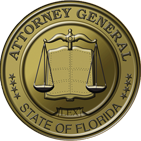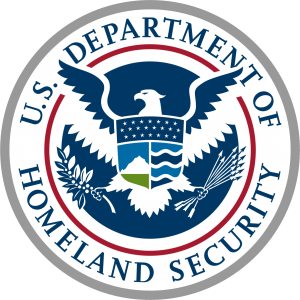The Department of Homeland Security defines human trafficking as Modern-day slavery
involving the use of force, fraud, or coercion to obtain some type of labor or commercial sex act.
State Law
According to Florida State Statute §787.06, human trafficking occurs when any person:
knowingly, or in reckless disregard of the facts, engages in, attempts to engage in, or benefits financially from subjecting a person to human trafficking using coercion for labor services or sexual commercial activity. If the trafficked person is under 18, coercion doesn’t have to be shown.
Human trafficking is defined as “transporting, soliciting, recruiting, harboring, providing, enticing, maintaining, or obtaining another person for the purpose of exploitation of that person.” However, a person does not have to be physically transported for the crime of trafficking to occur.
Every trafficking crime in Florida is a felony.
Prevalence of Human Trafficking in the U.S.
- During 2016, the National Human Trafficking Hotline reported 556 certified human trafficking cases. Of these cases, 31% involved the trafficking of minors.
- During 2016, the U.S. Department of Homeland Security opened 1,029 investigations for possible human trafficking in the US.
- During 2016, the Department of Justice secured 439 convictions against traffickers, compared to 297 convictions the year before. Of the 429 convictions, 439 were sex trafficking, and 14 were labor trafficking.
Facts Every Medical Professional Should Know
- The Florida Department of Children and Families reported that Florida received 1,892 reports of human trafficking in 2016, a 54 percent increase from the previous year. The increase in reported allegations of human trafficking was due in large part to increased awareness and training.
- Human trafficking is present in every country in the world.
- Most known victims of human trafficking in 2016 were from the United States, Mexico, and the Philippines.
- In certified cases of human trafficking in the state of Florida in 2016, 30% of them were domestic cases: the victims were American citizens.
- Human trafficking is a profitable and rapidly-growing criminal industry – it generates $32 billion in revenue for traffickers.
- Human trafficking as an industry is on target to surpass the drug trade in profitability by 2020.
- Among sex trafficking victims who are minors, 75% report that they have been advertised or sold online.
- While sex and labor trafficking are the most prevalent forms of human trafficking, there are other forms as well. People are also trafficked for the illegal organ trade and for the purpose of recruiting child soldiers in certain parts of the world.
Remember: A victim does not have to be physically transported to a different location in order for the crime of human trafficking to occur.
Read Brief News Report #1
A couple in Gadsden County was accused of prostituting a girl for 13 years to support their drug habit. They were arrested on felony human trafficking charges. From ages 3 to 15, the victim was sexually molested by multiple people. The alleged perpetrators were paid in drugs by adult men who were then allowed to have sexual contact with the victim, who sustained physical and mental injury.
Source: Etters, K. (2017, October 9). Pair accused of sex trafficking girl for 13 years. Tallahassee Democrat. Retrieved October 11, 2017
Read Brief News Report #2
A New Port Richey man has been accused of targeting women in strip clubs and luring them into forced prostitution. The alleged perpetrator would get the victims hooked on drugs and forced them to perform sexual acts, in return for money for him and more drugs for them. The trafficking was occurring out of the suspect’s house. The alleged perpetrator used the profits to pay off drug-related debts.
Source: Mesmer, A. (2016, May 12). Human trafficking ring busted in New Port Richey. Retrieved November 01, 2017
Read Brief News Report #3
A family in Immokalee was charged with labor trafficking on their tomato farm. Two brothers received the harshest sentences, known as the “young patriarch” and “enforcer” of the operation. Fifteen undocumented workers from Mexico and Guatemala were enslaved on the farm, denied pay and told they couldn’t leave until they paid off their debts for beer and drugs. The victims were forced to work on the farm, severely beaten, restrained, and locked in a truck. During the trial victims testified, one showing an inches-long scar on his stomach and right side.
Source: Beardsley, S. (2008, December 19). Brothers receive 12-year prison terms in Immokalee human slavery case. Naples Daily News. Retrieved October 11, 2017
Rebutting Myths and Learning Facts
It is important to be able to distinguish between myths and facts about human trafficking
|
Myths |
Facts |
|---|---|
|
All victims who are trafficked are violently kidnapped or “snatched.” |
While this does happen, it is by far the rarest of trafficking circumstances. Much more often, trafficking occurs when a person responds to an ad for a legitimate job that turns out to be a scam. Or a victim meets a charming stranger and the relationship quickly becomes exploitative. |
|
Human trafficking only happens in developing countries. |
Human trafficking occurs in some fashion in every part of the world. |
|
Victims of human trafficking are always taken out of the country. |
There is no requirement that a victim must be transported anywhere in order for human trafficking to occur, although transportation is frequently a part of trafficking. Remember, some victims are exploited within their own communities. |
|
Only women are trafficked, and always for forced prostitution. |
Victims of human trafficking can be anyone. Men and young boys are also trafficked, but in smaller numbers than women and girls. Both men and women are trafficked for forced sex and labor. |
|
All traffickers are powerful people who are involved with or have connections to organized crime. |
Organized crime does play a large role in human trafficking globally. But traffickers can be almost anyone, from any socio-economic group. |
Sponsored by the

The Human Trafficking Project was supported by Award No. VF004 awarded by the Office for Victims of Crime, Office of Justice Programs, Sponsored by the Institute for Family Violence Studies and the State of Florida.


